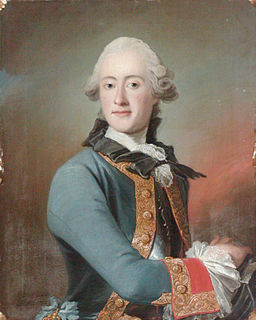
Frederik Christian Kaas was a Danish naval officer and landowner.
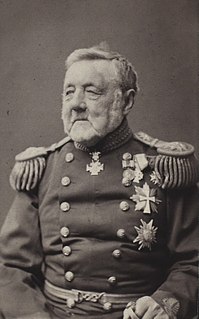
Steen Andersen Bille, was a Danish vice-admiral and minister for the navy. He was famous for his service in the Danish Royal Navy, particularly during the First Schleswig War, 1848–51.
The name of Steen Andersen Bille is closely associated with one extended family of Danish naval officers over several generations.
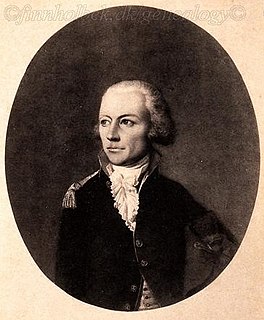
Steen Andersen Bille (1751–1833) was a Danish naval officer and a member of the Bille family. He rose to the rank of admiral and became a Privy Counselor during the period of Denmark's policy of "armed neutrality" following the Gunboat War. He was instrumental in the rebuilding of the Danish Navy after 1814.
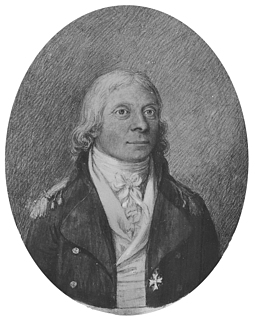
Lorentz Fisker (1753–1819) was a Danish naval officer who charted the waters of southern Norway and the Kattegat, and organised Norwegian defences against Britain and Sweden.
The family name Stibolt was closely associated with the Danish-Norwegian navy of the 18th century and with the island of Christiansø from the time that Hans Anderson Stibolt was appointed commandant of those most easterly islands of Denmark. His three sons all held naval officer rank, as did many of the subsequent generations, serving with a varied amount of success. Three generations held the post of Commandant on Christiansø.
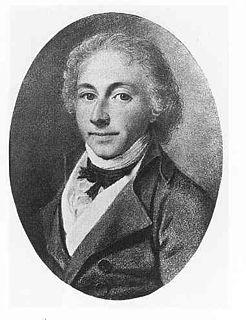
Frantz Christopher Henrik Hohlenberg was a Danish naval officer who specialised in ship design and had little seagoing experience.
HDMS Hvide Ørn , was a light frigate designed by Frantz Hohlenberg and built in Copenhagen. She capsized and was lost with all hands off Corsica at the end of 1799. There were three previous ships bearing this name in the Danish navy.
Frederik Michael Krabbe (1725–1796) was a Danish naval officer and master shipbuilder (fabrikmester)
Rasmus Krag (1680–1755) was a Danish naval officer who first became a junior lieutenant in 1700 and vice-admiral in 1736. He aspired to be a naval architect but his efforts proved unsatisfactory.
HDMS Ørnen (1694) was a frigate in the Royal Danish Navy active during the Great Northern War

Michael Bille (1680–1756) was an officer in the Danish Royal Navy during the Great Northern War. He was commissioned as a junior lieutenant in 1699, advancing steadily to become Vice admiral when he retired in 1737.
Daniel Ernst Bille was a naval officer and rear admiral in the service of the Danish crown.

Frederik Christian Kaas (1725–1803) was a naval officer and admiral in the service of the Danish Crown.
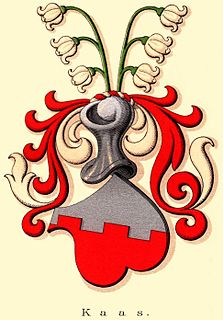
Frederik Kaas was a Danish naval officer who also saw service with other navies. He died in the Battle of Pondicherry in a French warship.
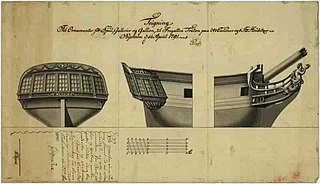
HDMS Triton (1790)

Ulrich Jørgensen Kaas, a member of the old noble family of Mur Kaas, was an officer in the Dano-Norwegian navy who rose to the rank of Rear Admiral in the Great Northern War and later to full Admiral in 1732. Following a power struggle within the Danish admiralty, he left the naval service for a senior post in Bergen.

Ulrik Christian Kaas, a member of the old noble family of Mur Kaas, was a Danish naval officer who rose to the rank of admiral.
HDMS Justitia was a ship-of-the-line designed by Ole Judichaer built at Nyholm, Copenhagen for the Royal Danish-Norwegian Navy.









